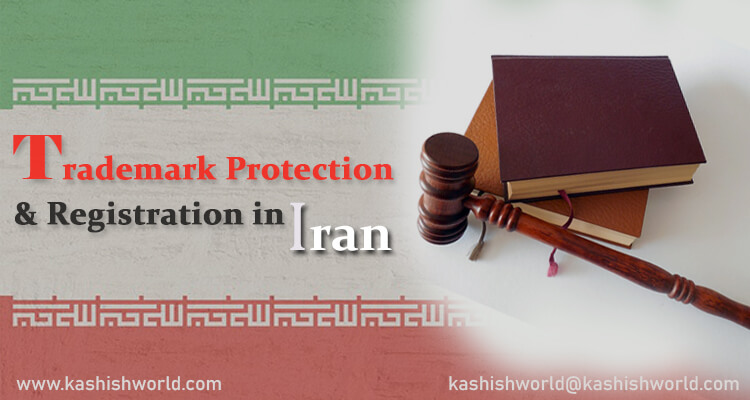
In the present highly competitive business environment, Iran is undoubtedly one of the most potential markets in the Middle East for many international and local traders. Many brands and business entities across the globe always look forward to entering this lucrative market. The rapidly expanding significance of the economic value of Iran’s local markets requires establishing well-defined and practical mechanisms for the registration, protection, and enforcement of Intellectual Property Rights (IPRs). As trademark is indeed one of the most common and dominant IP Rights, let us discuss the various aspects of Trademark Protection and Registration in Iran.
In Iran, the trademark practice typically focuses on trademark protection, including trademark filing and registration, and trademark enforcement, including enforcement of well-known brands against the issues of counterfeiting and Trademark Infringement. Iran’s Patent and Trademark Registration Act of 2008 and Related Regulations, along with the E-commerce Law of 2003 and the Paris Convention for the Protection of Industrial Property of 1959, govern the mechanism of Trademark Registration, protection, and enforcement in Iran by establishing a legal trademark framework and setting out the procedures for criminal prosecution and criminal action.
Trademark Protection in Iran
In Iran, there is no trademark protection for unregistered trademarks. Every other individual must go ahead with trademark registration for obtaining adequate protection. Although an individual can use a trademark in Iran without registration; however, in such a scenario, the individual or the owner of the trademark shall never be able to use the Trademark Law for seeking protection in case of trademark infringement. The exclusive Trademark Rights lie solely with the party or individual that has registered the proposed mark as a trademark. Additionally, the mere use of the trademark doesn’t allow the owner to enforce the unregistered rights and extract any benefit from the protection of the mark.
Trademark Registration in Iran
In Iran, the trademark registration process involves the general procedures of filing the Trademark Application, examination & publication of the proposed mark, and then registration (in case of no Trademark Opposition). The usual time frame to complete the entire process of trademark registration in Iran is somewhere between 15-18 months with relatively minimal expenditures and fees for the business and brand owners. With the help of a Trademark Attorney, an individual or brand owner needs to submit the following documents and information at the time of filing the trademark application.
- Personal details of the trademark applicant, including name, address, and nature of business
- A specimen of the proposed trademark
- A complete list of services and goods corresponding to which the trademark applies
- A Power of Attorney (POA) to the trademark applicant’s representative, duly legalized by the Iranian consulate
- A copy of the incorporation certificate for the trademark applicant (in case of a corporation), duly legalized by the Iranian consulate
All the business owners and individuals should always conduct a clearance search of their proposed trademark before going ahead with its registration and use. Although no proof of use is required at the time of trademark registration in Iran, still business and brand owners should carry out a Trademark Search before commencing registration or commercial exploitation of their proposed trademarks as a precautionary measure. Such trademark searches can be initiated and completed within an average duration of five working days.
Iran’s trademark law defines a trademark as any word, design, image, or expression, which is capable of distinguishing commercial, industrial, or agricultural products. Furthermore, non-traditional trademarks, including color marks and 3D marks, can also obtain trademark protection in Iran. Standard restrictions such as official emblems and the national flag aren’t trademark registrable. Also, the proposed trademarks covering “Beer and Ale” in Class 32 and “Alcoholic Beverages” in Class 33, and all the ones consisting of portraits of a woman in any format, are strictly prohibited from trademark registration in Iran.
For trademark registration, Iran uses the International Classification of Goods and Services (the Nice Classification), although the Registry in Iran has a local pre-defined list of goods and services as well, which may not cover all the ones listed in the Nice Classification. A trademark applicant should opt for the pre-defined list of goods and services, which the Registry follows in Iran. Besides, Iran has a multi-class trademark filing system too, which implies that a trademark applicant can register the proposed trademark in more than class, that too, with a discounted official fee applied for every additional class.
Once the trademark application is submitted, the Trademark Office in Iran examines it, and if no oppositions or objections are raised against the proposed mark or the oppositions or objections are resolved in favor of the trademark applicant, then the proposed mark and the trademark application shall be published, followed by an opposition period of 30 days. If no oppositions or objections are raised within this period, then the mark will be registered as a trademark, and a number will be assigned to it. The registration shall again be published, and the trademark registration certificate shall be issued to the trademark owner following the stage of publication.
Trademark Use Requirements in Iran
If the owner of a trademark, his or her legal agent or successor, doesn’t use the Registered Trademark for three years from the date of registration without any legitimate reasons, then that trademark may prove to be vulnerable to a cancellation action by any competitor or a third party. Trademark owners don’t require submitting any proof of use of the trademark, unless and until any third party files a cancellation request corresponding to the trademark’s non-use during the term indicated above.

